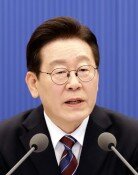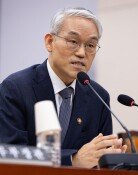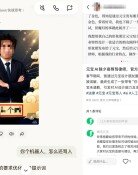[Editorial] Aid for North Must Be Linked to Human Rights
[Editorial] Aid for North Must Be Linked to Human Rights
Posted December. 10, 2005 07:51,
The 2005 Seoul Summit: Promoting Human Rights in North Korea concluded yesterday after adopting a Seoul Declaration with eight categories, including urging a halt to retaliatory action on North Korean defectors, elimination of political prison camps, repatriation of prisoners of war and the abducted, and active engagement of the South Korean government.
We agree with the intent of the declaration and hope the South Korean government changes its passive attitude. The fact that the international community has urged for more active participation shows how passive our government was. It is much too shameful.
It was reaffirmed that the human rights situation in the North is a structural problem of the regime. As Mr. Hwang Jang Yup, the highest ranking North Korean official who ever fled to the South pointed out, The authoritarian regime of the North starts to destroy human rights when a child learns to talk, and uses all means necessary to make North Koreans moral slaves of the regime, North Korea now uses crimes against human rights to maintain its regime.
However, South Korean officials say that peace and stability policies should come before official requests for improvements in human rights, and lawmakers of the ruling party are voicing their opinions saying, Engagement in improvements means risking a war. Even some civic groups who regard themselves as progressive hampered the summit, arguing, Improving the human rights situation in the North is yet another human rights infringement that threatens self determination rights.
The South Korean governments claim that it puts more emphasis on action than words is unpersuasive. Although more than one trillion won worth of food and fertilizer has been delivered to the North this year alone, there is no substantial evidence whatsoever that they were used to enhance the lives of North Koreans, let alone if they were distributed appropriately. Therefore, it is understandable that U.S. special envoy Jay Lefkowitz said that economic assistance and human rights improvements need to be linked.
Now, we must change our perceptions. The human rights issue and improving inter-Korean relations should no longer be separate, and as participants of the Seoul summit pointed out, Active discussion on the Norths human rights conditions will contribute to improvements in relations between the two Koreas and help establish a peaceful system in Northeast Asia.
The more we avoid human rights situations to not upset the Norths leader, the worse the human rights violations will become, and the more isolated the South will be in international society. We may have pleased the Dear Leader by treating the U.S. Special Envoy for North Korean Human Rights poorly, but the aftermath is indeed worrisome.







